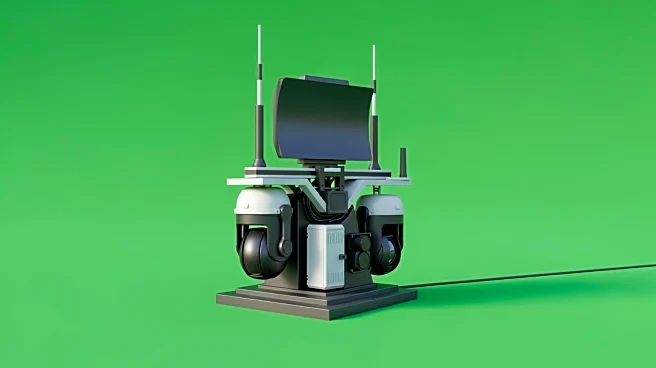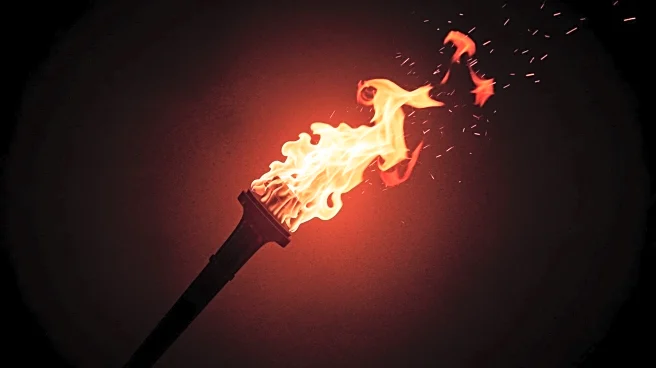What's Happening?
The UK government is set to grant new powers to British military personnel to shoot down drones that pose a threat to military sites. This development comes in response to recent drone incursions at four British airbases used by U.S. forces, including
RAF Lakenheath and RAF Mildenhall. The new 'kinetic option' will allow British troops and Ministry of Defence police to take decisive action against drones, supplementing existing protocols that involve diverting drones or disrupting their GPS signals. The move is part of a broader strategy to enhance security at military sites, with potential extensions to civilian locations such as airports. The decision follows a series of drone-related disruptions across Europe, prompting discussions among EU leaders about establishing a 'drone wall' to counteract Russian drone activities.
Why It's Important?
The introduction of these new powers is significant for both UK and U.S. military operations, as it addresses the growing threat of drone incursions at strategic sites. The ability to shoot down drones enhances the security of military bases, which are critical for U.S. military operations in Europe. This measure reflects a broader trend of increasing drone threats, which have disrupted airspace and raised security concerns across Europe. The move could also influence public policy regarding drone regulations and airspace security, potentially leading to stricter controls and surveillance measures. Stakeholders such as military personnel, airport authorities, and policymakers stand to gain from improved security protocols, while drone operators may face increased scrutiny and restrictions.
What's Next?
The UK Defence Secretary John Healey is expected to formally announce these new powers, which may lead to further discussions on extending similar measures to civilian locations. The implementation of these powers will likely involve coordination between military and civilian authorities to ensure comprehensive airspace security. Additionally, the EU's consideration of a 'drone wall' could lead to collaborative efforts among member states to develop integrated defense systems against drone threats. The U.S. military may also review its own protocols and collaborate with UK counterparts to enhance joint security measures at shared bases.
Beyond the Headlines
This development highlights the evolving nature of warfare and security, where unmanned aerial vehicles (UAVs) play an increasingly prominent role. The ethical and legal implications of shooting down drones, especially in civilian areas, may prompt debates on privacy, airspace rights, and the balance between security and civil liberties. Long-term, this could lead to advancements in drone detection and neutralization technologies, as well as international agreements on drone usage and airspace management.















